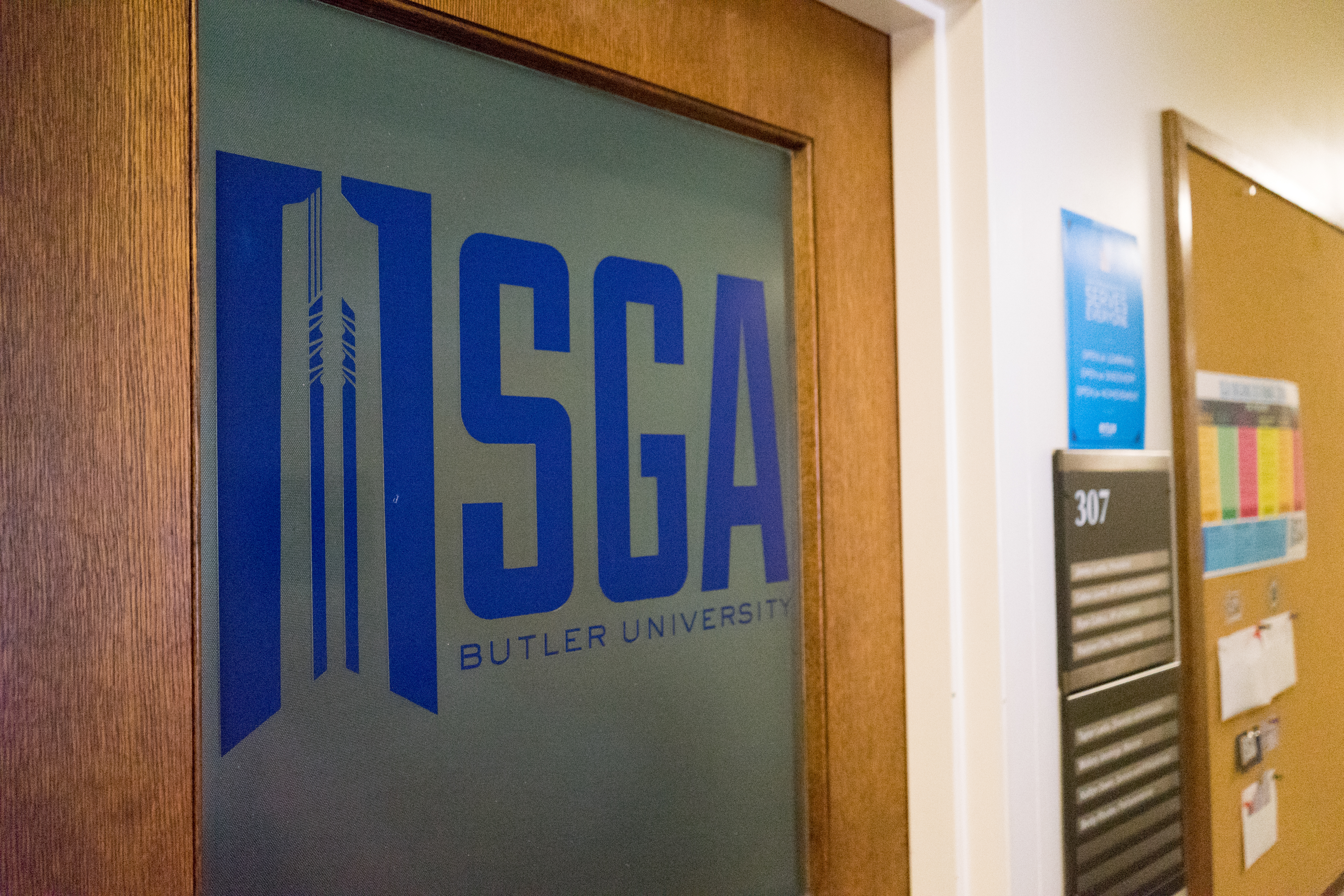Student Government Association’s presidential and vice presidential candidates debate their platforms. Collegian File Photo.
DAVID CLARK | STAFF REPORTER | daclark1@butler.edu
Three presidential and vice presidential campaigns took to the debate stage last night to articulate their visions for the future of student government at Butler University.
SGA presidential and vice-presidential candidates met in Shelton Auditorium on March 24 in the first presidential debate on campus since 2019. Presidential candidates gave opening and closing statements during the debate while their vice-presidential counterparts gave response to how they would create a budget for the following year. Either individual on the campaign could answer each question during the rest of the debate.
In the hour scheduled for remarks, each campaign emphasized a need to listen to diverse voices on campus.
Paul Ford, a first-year student and current senator for the Lacy School of Business, remarked that too often SGA has looked to him to speak for minority interests because of his own identity.
“The few times I’ve proposed legislation to the Senate, it’s felt as though I alone was speaking for all students of color on campus,” Ford said. “It’s a lonely feeling.”
Ford went on to emphasize how he plans to create a culture of expansion on campus, including further integrating diversity, equity and inclusion goals into SGA. Ford intends to provide an easier pathway for organizations of minority students on Butler’s campus to receive grants and funding for activities.
Thomas Dziwlik, a sophomore student and current SGA commissioner for academic affairs, noted the specific need for focus on students’ mental health. Dziwlik spoke of his desire to use team leadership, as well as his vice-president’s unique perspective, to create meaningful change on campus.
“My academic affairs commission received over 500 responses after we sent out our survey about BUBeWell weekend,” Dziwlik said. “I’m excited to have those voices and bring them to the administration to make the type of change students are looking for.”
Dziwlik’s vice-president, sophomore Lauryn Lintner, has no experience of her own in SGA, which Dziwlik sees as an asset. Several times during his remarks, Dziwlik expressed his consternation with SGA’s governance, and how too often problems have been pushed off to the next officers.
With Lintner by his side, Dziwlik expects no such procrastination in dealing with students’ issues within SGA.
Will Gigerich, a junior student and current speaker of the SGA Senate, holds the most experience among all the presidential candidates. Both Gigerich and his vice-president Miki Kawahara were student senators for a full year prior to the COVID-19 pandemic, a fact that Gigerich highlighted in his remarks.
Gigerich’s campaign also touched on the three major points of his administration — community, equity and advocacy. One of Gigerich’s central ideas is the creation of a director of community engagement, which would help students find ways to feel more comfortable getting involved on campus.
“We are beholden only to students,” Gigerich stressed. “I will contact the appropriate people to create what change students want to see. I’ll even picket President Danko’s house if that’s what it takes.”
Butler’s SGA elections will take place on Tuesday, March 30 on Butler Engage. Voting will last until 8 pm.
Students can visit Butler SGA’s website to learn more about each campaign’s full platform. Each campaign also has an Instagram account where they post updates and answers about their platform.



